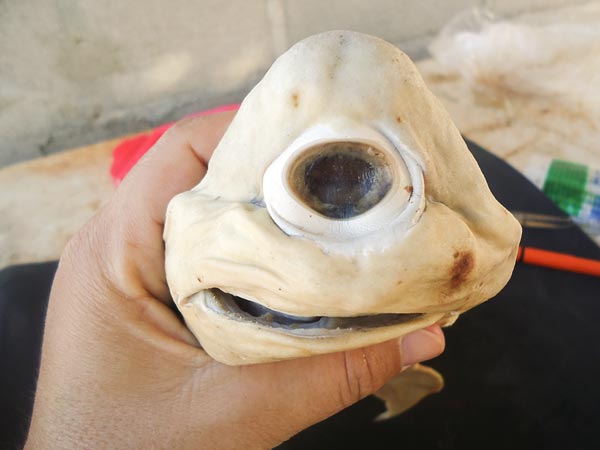We're open daily! View holiday hours
Science News
Science Horror Stories
October 28, 2011

Bwahahahaha. Put on your evilest laugh and get ready for some spooky science headlines…
Last year, we featured a video about flesh-eating beetles, so let’s start with creepy insects this year. We love those parasites that turn insects into zombies—can’t get enough of them! So, of course, we have to share this story with you. A parasite that turns worker wasps into queens, at least temporarily, Wired reports:
Infected P. dominulus—better known as common European paper wasps— reject their genetically preordained roles, abandon their hives and embark on a long, macabre journey during which a few live for a time as queens, albeit murderous queens.
Feeling hungry? How about insect cuisine? It’s sustainable protein, says NPR, and delicious to boot:
Exhibit A: Fried wax moth larvae served inside a taco or canape. Exhibit B: Bee larvae, which taste like "nutty, mushroomy raisins."
Num!
Speaking of eating… Hagfish love to eat decaying fish corpses. But instead of scavenging on dead fish, they are brutal killers. They release toxic slime that covers the gills of their prey, choking the fish to death. Read more at New Scientist.
Want more from the haunted sea? How about this recently discovered cyclops shark? The photo really creeps me out! And National Geographic has more freaky new species to peruse, including a demon bat.
There are plenty of space photos on the web to get you in the mood for Halloween—National Geographic, Universe Today, Bad Astronomy and even Cassini provide scary offerings.
Not your thing? How about a pumpkinosaurus?
Don’t worry, we won’t leave out mummies. Lucky for you, ScienceNOW has an article this week titled, “Mummy Has Oldest Case of Prostate Cancer in Ancient Egypt.” Who knew?
Finally, perhaps the scariest story for this Halloween… It’s predicted that world population will reach seven billion on Monday. Scientific American covers how this number will affect cities while LiveScience describes how it will create a poop problem. Meanwhile, Nature News provides some context:
… a figure of 7 billion is incredible for the sheer momentum it represents: a full doubling of the planet's population since 1967, with current growth adding 200,000 people each day, and a nation larger than the size of France each year.
Horrors! Happy Halloween.
Image: Marcela Bejarano-Álvarez